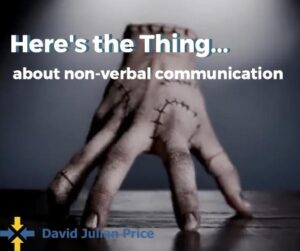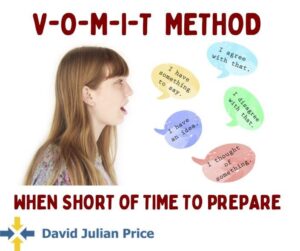This may explain why things aren't moving forward
Are you and your team “Yes but” people, or “Yes and” people?
Do you naturally tend to say “yes and” or do you naturally say “yes but“?
The answer to that question can define your decision-making style and even your style of work generally.
But let’s dive deeper. Think about your meetings – all of them. Meetings have a tone, a style, a thrust, a custom. Some meetings are “yes and“ meetings and some meetings are “yes but” meetings. Some people in your meetings are “yes and” people while others are “yes but” people.
I think metaphors are powerful and one that is useful here is a car. “Yes and “people tend to look through the windscreen at what lies ahead. They tend to be possibility thinkers. They think about the future and what needs to be done next. These people think like a project manager – what needs to be done next in order for the results to come to fruition.
“Yes but” people, on the other hand, tend to look into the rearview mirror and see what has been done, what has happened. While this is useful in some circumstances, it does not move things forward. I’m not suggesting it necessarily takes things backwards. It just doesn’t move things forwards.
So we can look at this concept from two angles – the people angle and the meeting or team angle.
Start with yourself. Do you wear a “yes and” lens or a “yes but” lens? Be brutally honest with yourself. If you’re the leader, it’s really important that you’re a “yes and” person because the team or the meeting will take their lead from you. Whatever lens you’re looking through, they’ll also look through.
 Next, look at the meetings and your team as a whole. What is the natural tendency of the group? Most meetings will have people from both camps, but one will tend to be the driver. Which is it?
The whole concept of “yes and”/”yes but” comes from the work of improvisation. Improvisation actors are trained to understand that “yes and” opens up possibilities while “yes but” closes them down. It’s exactly the same with meetings and the way you think and make decisions.
Try this at your next meeting – ban the word “but”, especially ban the two words “yes but”. Try it. You’ll be surprised at what happens.
I’d love to hear your results. Please email me and tell me what happens. [email protected]
Next, look at the meetings and your team as a whole. What is the natural tendency of the group? Most meetings will have people from both camps, but one will tend to be the driver. Which is it?
The whole concept of “yes and”/”yes but” comes from the work of improvisation. Improvisation actors are trained to understand that “yes and” opens up possibilities while “yes but” closes them down. It’s exactly the same with meetings and the way you think and make decisions.
Try this at your next meeting – ban the word “but”, especially ban the two words “yes but”. Try it. You’ll be surprised at what happens.
I’d love to hear your results. Please email me and tell me what happens. [email protected]
 Next, look at the meetings and your team as a whole. What is the natural tendency of the group? Most meetings will have people from both camps, but one will tend to be the driver. Which is it?
The whole concept of “yes and”/”yes but” comes from the work of improvisation. Improvisation actors are trained to understand that “yes and” opens up possibilities while “yes but” closes them down. It’s exactly the same with meetings and the way you think and make decisions.
Try this at your next meeting – ban the word “but”, especially ban the two words “yes but”. Try it. You’ll be surprised at what happens.
I’d love to hear your results. Please email me and tell me what happens. [email protected]
Next, look at the meetings and your team as a whole. What is the natural tendency of the group? Most meetings will have people from both camps, but one will tend to be the driver. Which is it?
The whole concept of “yes and”/”yes but” comes from the work of improvisation. Improvisation actors are trained to understand that “yes and” opens up possibilities while “yes but” closes them down. It’s exactly the same with meetings and the way you think and make decisions.
Try this at your next meeting – ban the word “but”, especially ban the two words “yes but”. Try it. You’ll be surprised at what happens.
I’d love to hear your results. Please email me and tell me what happens. [email protected] 




